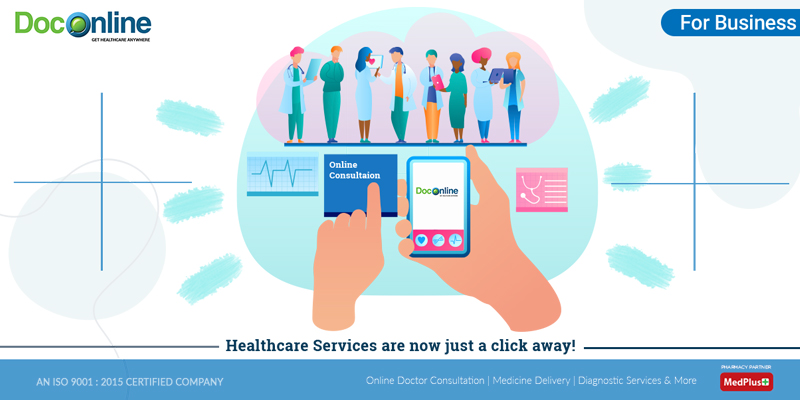How Subscription Based Healthcare is Transforming Patient Access to Services
How Subscription Based Healthcare is Transforming Patient Access to Services
Blog Article
Navigating the Future of Medication With Subscription-Based Medical Care Services
As the healthcare industry progresses, subscription-based services become a pivotal version guaranteeing to improve client treatment shipment. With the prospective to offer streamlined, economical services via predictable rates and tailored focus, these services stand at the leading edge of modern clinical technology. Yet, as we consider their increase, one need to ponder the effects of integrating such systems right into existing medical care frameworks. What difficulties do they position in regards to data safety and security and fair access, and how might they redefine the patient-provider connection? The solution to these questions could fundamentally modify our strategy to healthcare.
Increase of Registration Health Care
As medical care systems all over the world face raising pressures from climbing prices and need for services, the advent of subscription-based health care versions has emerged as a transformative fad. This innovative technique is interrupting standard medical care distribution by providing a predictable, flat-rate settlement structure for medical services. Rooted in the concepts of concierge medication, subscription-based health care allows carriers to concentrate on customized patient treatment while at the same time managing operational efficiencies.
The increasing customer need for openness and predictability in medical care expenditures has actually driven the shift in the direction of this version. Subscription-based services frequently provide direct access to medical care professionals, which can minimize the management problems associated with insurance coverage cases and compensations.
This version is acquiring grip amongst diverse medical care providers, from health care physicians to specialized clinics, by straightening economic rewards with precautionary and continual care. By shifting the focus from quantity to value-based care, subscription healthcare has the potential to improve the landscape, cultivating a much more lasting and patient-centered approach to wellness management.
Benefits for Individuals

Additionally, subscription-based solutions typically stress preventative treatment, motivating normal exams and health testings. This aggressive strategy can result in early detection of health issues, potentially improving outcomes and minimizing long-term medical care expenses for clients. In addition, such versions typically provide clear rates, allowing people to much better recognize their health care costs and prevent unexpected clinical bills.
The personalized nature of subscription-based medical care also improves person experience. Individuals can obtain tailored healthcare plans that fit their particular requirements, promoting a more patient-centric technique.
Technology's Function in Improvement

Synthetic knowledge (AI) plays a vital role in anticipating analytics, assisting in early medical diagnosis and customized treatment plans. AI algorithms analyze substantial datasets to recognize patterns that could be neglected by human observation, hence enhancing click clinical decision-making. Moreover, digital health records (EHRs) enhance client info management, guaranteeing connection and comprehensibility of care across different services and companies.
Blockchain innovation enhances data security and personal privacy, vital for maintaining patient count on electronic platforms. It makes it possible for secure and transparent purchases of medical data, ensuring that sensitive information remains protected. With the integration of artificial intelligence and AI, blockchain can automate complicated healthcare procedures, reducing administrative worries.
Challenges and Considerations
While technology pushes the capacities of subscription-based healthcare solutions, it also presents a set of difficulties and considerations that need to be dealt with to ensure successful execution. One considerable obstacle is the fair access of these services. As subscription models usually count on electronic platforms, there is a threat of exacerbating the digital divide, leaving behind people without net accessibility or digital literacy. Making certain these services do not disproportionately benefit only tech-savvy and affluent populations is critical.
Data personal privacy and protection stand for an additional vital factor to consider. Subscription-based services usually require the collection and storage of huge quantities of personal health and wellness info. Service providers have to follow rigid data defense regulations to maintain client count on and protect against unapproved access, which might bring about significant moral and legal effects.
As medical care requires progress, preserving an affordable balance between subscription fees and service top quality is important to prevent patient frustration and attrition. Addressing these challenges is important as subscription-based healthcare services proceed to increase and advance.
Future Ramifications for Medication
Subscription-based health care services are positioned to significantly check it out affect the future landscape of medication by reshaping just how care is accessed and supplied. These designs offer the prospective to democratize medical care gain access to, offering clients with more personalized and prompt treatments. By leveraging modern technology, such as telemedicine and data analytics, membership services can facilitate continuous monitoring and tailored health management, hence boosting end results and minimizing the concern on conventional healthcare systems.
As these solutions gain grip, they can stimulate a change in the direction of preventative care, stressing the relevance of early detection and monitoring of persistent problems. This positive approach might ultimately lower healthcare costs by reducing the need for expensive treatments emerging from late-stage illness management. Furthermore, subscription models offer a scalable solution to attend to disparities in health care access, specifically in underserved or country populaces.
Nevertheless, the change towards subscription-based versions requires addressing governing and honest factors to consider, including data privacy and fair accessibility. As the sector evolves, joint initiatives between policymakers, innovation designers, and doctor will certainly be important to establishing robust frameworks that guard person passions while fostering advancement. Inevitably, these services promise to add significantly to a more reliable, patient-centered health care ecosystem.

Verdict
Subscription-based medical care services stand for a substantial advancement in the medical field, providing predictable expenses and personalized care that enhance availability and prioritize precautionary measures. As the health care landscape develops, registration versions are positioned to play an important role in shaping the future of medication.
As the healthcare market advances, subscription-based services emerge as an essential design assuring to improve person care distribution.As medical care systems around the globe face boosting pressures from climbing costs and need for services, the arrival of subscription-based healthcare models has actually arised as a transformative pattern (subscription based healthcare).With the increase of subscription-based healthcare models reshaping standard healthcare shipment, clients are starting to experience significant advantages from this innovative method. As health care requires evolve, maintaining an affordable equilibrium between registration fees and service quality is crucial to stop person frustration and attrition.Subscription-based health care solutions are poised to dramatically influence the future landscape of medication by improving exactly how blog here treatment is accessed and provided
Report this page